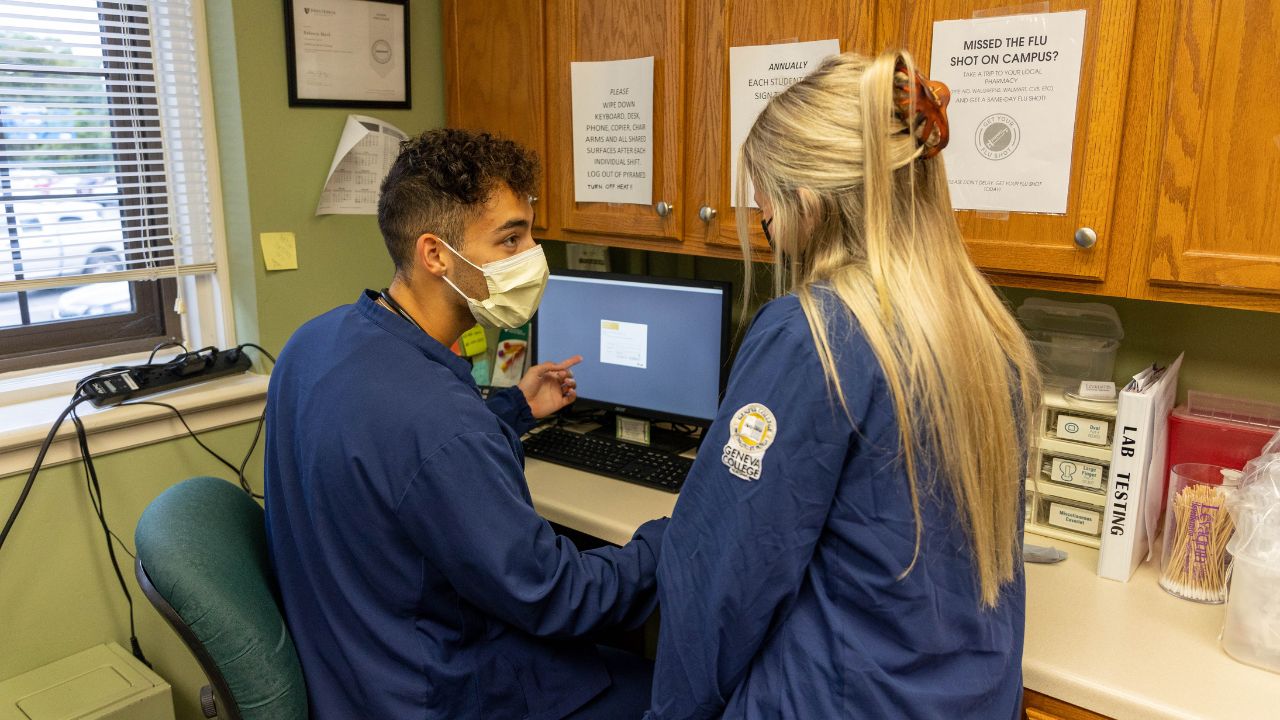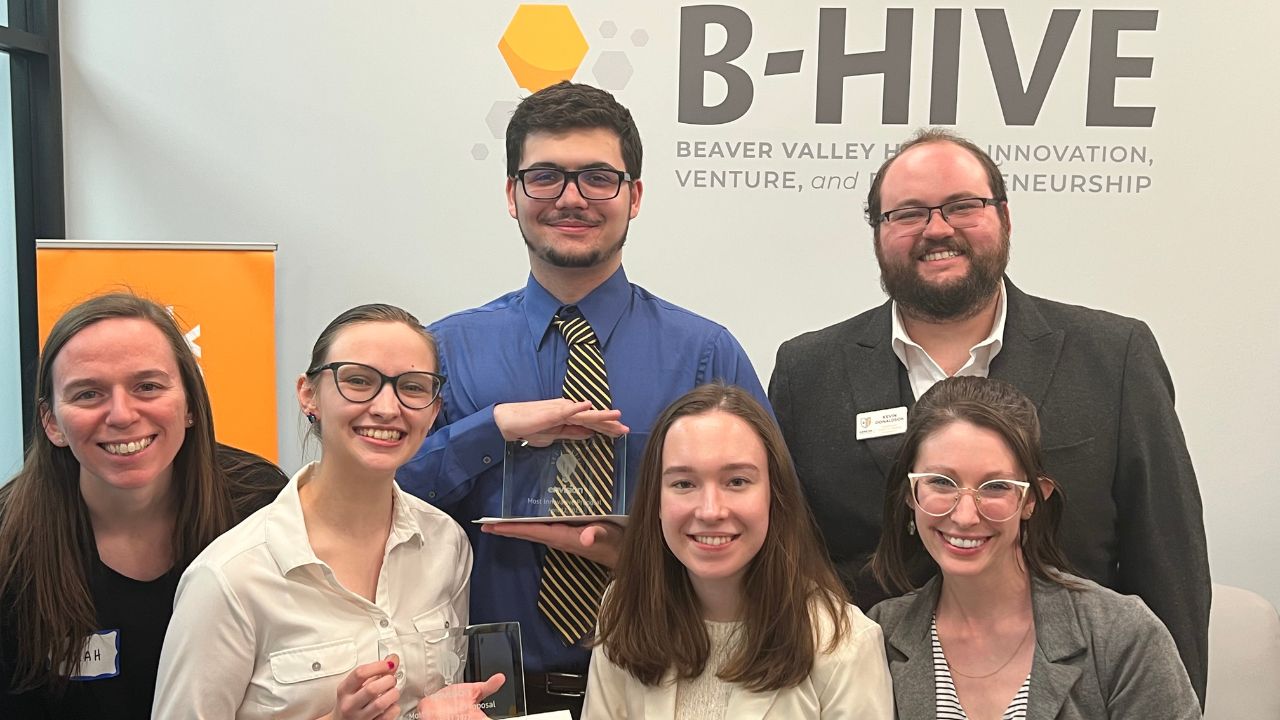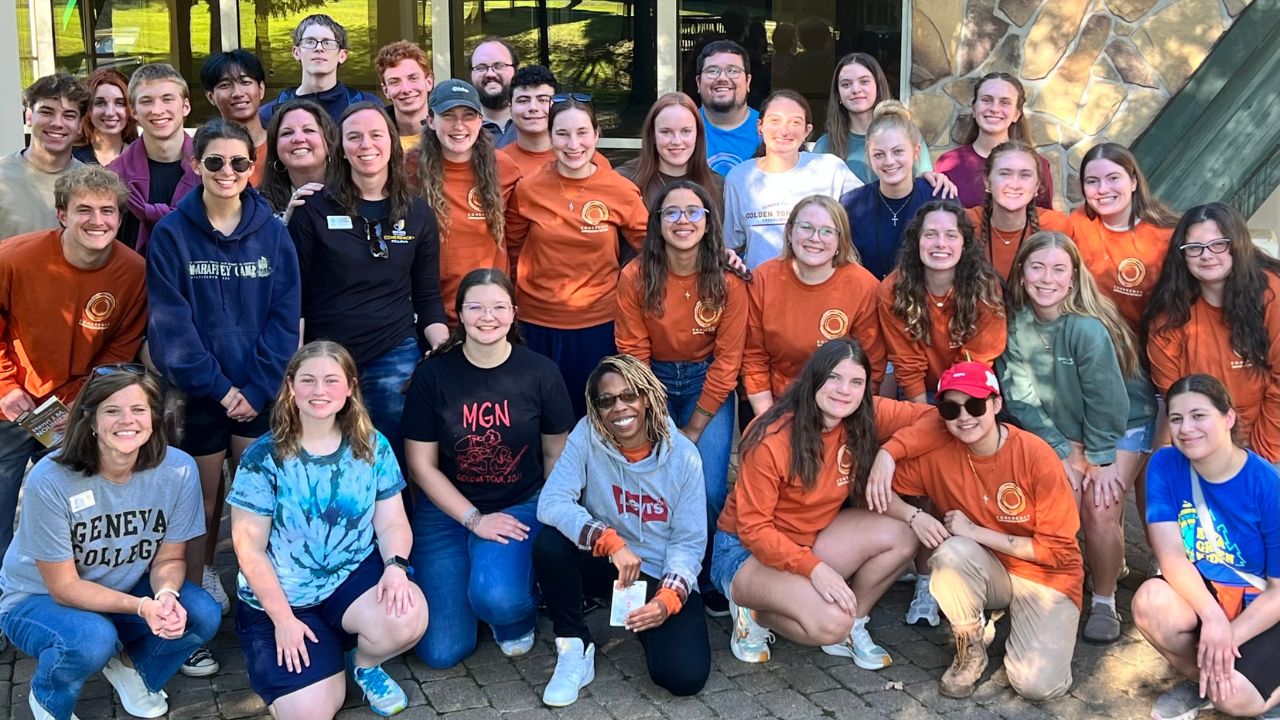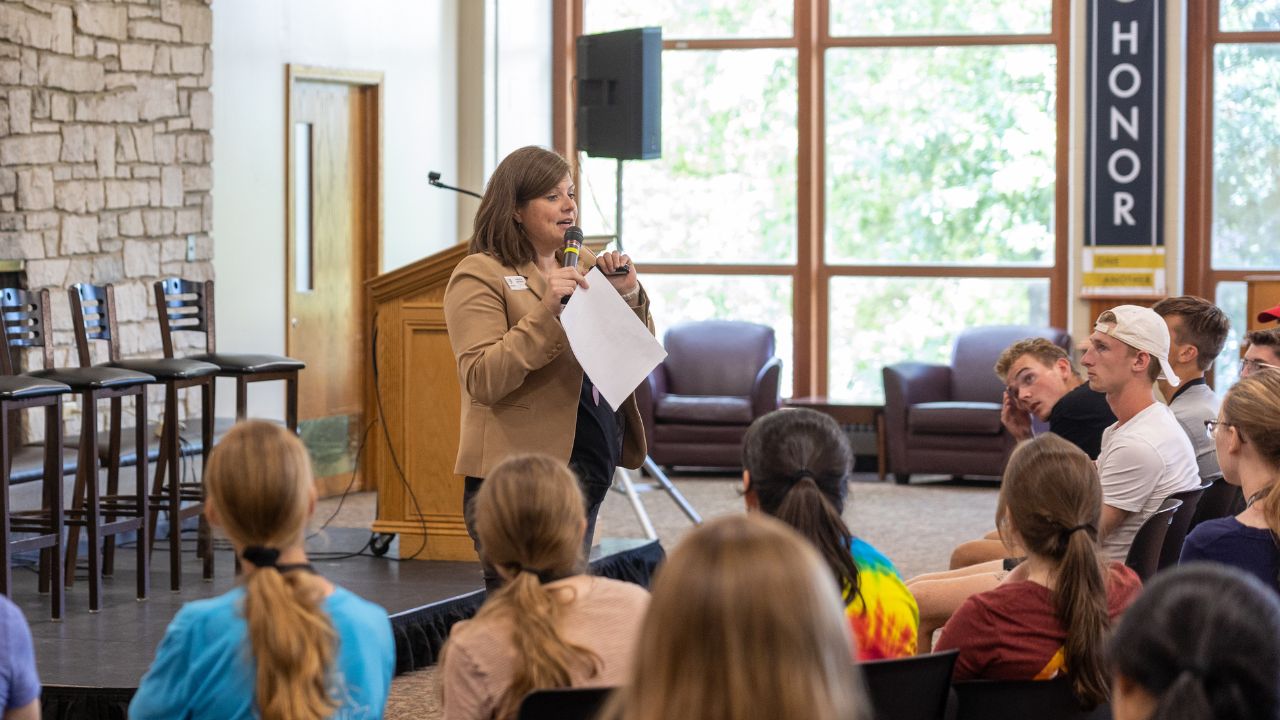
Nursing students have a stringent education process because they must prove they can safely care for patients. During clinical courses, students are measured and assessed through observation and exams. Practical skills are developed, and students learn how to care for multiple patients and their needs.
Most people have experienced health care in some way, whether because of their own illness or a family member's. These experiences are trying, and the nurses caring for them or their loved ones significantly impact that experience. Students who choose nursing as their major at Geneva have often shared about feeling called to nursing because of how nurses cared for them or a loved one. These nurses went above and beyond and left a lasting impression on them.
In Luke, Chapter 10, verses 25-37, an religious law expert asked Jesus how to qualify to enter the kingdom of God. The expert in religious law knew the minimum requirements according to what had already been written in the law and wanted to know if he met the minimum requirements. Jesus talked to the crowd about love and going above and beyond. In this story, a man's own people passed by him when he was hurt and lying on the side of the road. However, someone unlikely came along, helped him, cared for him, and returned to check to see he was being cared for appropriately (Luke 10:25-37, New Living Translation).
This man's story resonates with nurses because we feel that is what we are supposed to do! However, Jesus wants us to go above and beyond our tasks and recognize deeper needs. I remember a day when my phone rang at my desk, and I didn't recognize the extension. The caller ID said it was room number X. As I said hello, the voice on the other end of the phone asked if he was calling the pharmacy. I said no, and he said, "Never mind, I will ask my nurse." Intrigued, I realized it was a patient from the unit. He soon let me know he needed denture cream. I found out his name and told him I would work on it.
I could have called his nurse and relayed this, but I called the pharmacy instead. After saying they would send it up, I realized it might take a while, and lunchtime was coming. I offered to pick it up and deliver it to the patient. As I knocked on the patient's door and told him who I was, he was surprised I delivered his cream so quickly. I could feel a prompting to find out his story and not just drop the cream off and leave. During an emotional conversation, I learned his wife was currently in another hospital, and he could not see her. After offering prayer to the patient, I was compelled to help his situation. Others jumped in to help the patient Facetime with his wife so he could be reassured she was okay, helping him with his own recovery.
Had I only done what was required, I would have missed his need. On the surface, he needed his denture cream. But Jesus asks us to recognize deeper needs (heart needs) and see others as God sees us. We may ask God for what we want, but God provides our needs. So Jesus's reply to the expert in the law challenges us to use our training, be stewards in our profession, and provide for the NEEDS of others.
-Lynette Fair, MSN, PhD, Professor of Nursing, Director of Nursing/Department Chair
Opinions expressed in the Geneva Blog are those of its contributors and do not necessarily represent the opinions or official position of the College. The Geneva Blog is a place for faculty and contributing writers to express points of view, academic insights, and contribute to national conversations to spark thought, conversation, and the pursuit of truth, in line with our philosophy as a Christian, liberal arts institution.
Apr 19, 2023CareerRelated Blog Posts
Request Information
Learn more about Geneva College.
Have questions? Call us at 724-847-6505.











 Online Course Login
Online Course Login